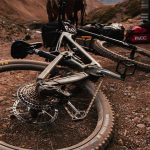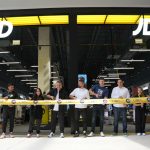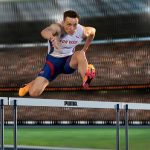Billabong International Limited lost $233.7 million in the fiscal year ended June 30 compared with a loss of $859.5 million in fiscal 2013, but has resumed growing in the United States for the first time in years, the company reported.
The Australian surf and action sports company reported negative EBITDA of $52.3 million, including $146 million of non-recurring, pre-tax items, including refinancing, restructuring and redundancy costs, non-cash impairment charges and fair value adjustments plus non-cash tax adjustments of more than $60 million.
Excluding those items and discontinued businesses, EBITDA reached a profit of $52.5 million. On a pro forma basis, taking into account the anticipated sale of the SurfStitch and Swell businesses, EBITDA was a profit of $60.3 million.
“In the nine months since announcing our seven-part turnaround strategy we have significantly stabilized, restructured and refocused the business,” Billabong CEO Neil Fiske said. “The company has a far stronger balance sheet. We have put in place a new global organizational structure and executive team. We have begun to simplify the portfolio. We have taken, and continue to take, significant costs out of the business.”
“As said at the half year, we are at the early stages of a complex, difficult turnaround,” Fiske continued. “The progress we have announced today will take time to fully flow through the business but I am pleased with the early indicators of success.”
Among those indicators was brand Billabong being on track for wholesale growth in the United States for the first time in several years based on FY15 forward orders. Billabong grew by 5 percent in the Asia-Pacific in the last six months.
“Billabong is our largest brand in our portfolio and the first to implement our global brand approach so these trends are very encouraging,” said Fiske.
Fiske said the Asia-Pacific region was also seeing growth generally while European operations have stabilised.
“Our biggest challenge and our greatest opportunity in the 12 months ahead is the Americas,” he said.
The region’s results were disproportionately weighed down by restructuring in Brazil and a weak Canadian action sports market.
“The good news is that Billabong and RVCA, which represent close to two thirds of the region’s brand sales, are seeing signs of growth in the US wholesale market,” said Fiske.
In the last year, Billabong’s portfolio has changed substantially. It divested the Dakine brand, virtually all of its 48.5 percent interest in Nixon and its Canadian retail chain West 49. Since the end of the financial year the Group announced the conditional sale of both its 100 percent ownership of Swell.com in North America and 51 percent stake in SurfStitch.com in Australia and Europe.
Excluding the discontinued businesses, but including SurfStitch and Swell global sales were $1.1 billion, up 1.5 percent in AUD terms. On the same basis, EBITDA was a profit of $52.5 million down $18.6 million on the previous comparable period. Further adjusting for SurfStitch and Swell, on a pro-forma basis, the businesses that the company will own going forward generated $1.02 billion in revenue and produced $60.3 million of EBITDA during 2014, excluding significant items.
Regional overview
By region, the Americas accounted for all of the weakness in the Group results.
The Americas have operated in a challenging environment with revenues down 9.9 percent for the year in local currency terms. As noted at the time of the interim results, the period of corporate upheaval in 2013 and overhanging problems had hit this region particularly hard, the effects of whichremained with the company throughout the second half.
The company is beginning to systematically address a range of issues and seeing early signs of improvement.
The second half was heavily impacted by Canada, where second half wholesale sales fell by US$3.9 million, and by Brazil, where wholesale sales for the latest half were down US$6.5 million.
Retail bricks and mortar revenues for North America were driven down in part by store closures. Comp store sales were down 6 percent for the half, reflecting weak US retail store traffic data across the industry.
Coming into FY15, Billabong forward orders are ahead of the prior period for the region, as are RVCA, while a restructured Element team under Frank Voit’s leadership is focused on rebuilding brand performance in the key North American marketplace.
Whilst the Americas were down, both Asia-Pacific and Europe saw EBITDA improvement.
In the Asia-Pacific region sales for the year were up 1.1 percent with the second half sales growing 4.5 percent on a constant currency basis, compared to the previous six months. Comp store sales were also stronger in the second half, up 2.3 percent compared to just 0.6 percent in the first half. Regional overheads were down by $10.2 million for the year compared to the previous comparable period. Despite some impact on gross profit margins from a lower Australian dollar during the middle of the year, overall EBITDA for the year was up $2.7 million or 7.8 percent on a constant currency basis.
In Europe the operation has been right sized into a smaller more stable business. A tighter focus on “quality customers,” a reduced reliance on close out sales as the company begins to get inventories under control and a significant reduction in overhead have delivered a more stable earnings performance after years of decline, the company reported. While Europe reported an overall EBITDA loss, after excluding the SurfStitch start-up losses and Europe’s allocation of global overhead, the region generated an EBITDA profit of $5.2 million up $1 million on the previous comparable period. Comp store sales grew 5.9 percent on the previous comparable period.
Turnaround update
Fiske also provided an update on the seven part turnaround strategy announced to the market in December 2013.
“First we laid out our strategy. Then we aligned the organization structure to that strategy. Now, we have built out a senior leadership team to drive execution and are seeing progress accelerate in each area.”
Among the key appointments, Fiske highlighted three global brand leaders, a new Chief Operating Officer and a number of key operating executives.
Under the new leadership team, the company has filled 63 key positions with both internal promotions and external hires. This talent investment has been funded with productivity gains and reductions in head count.
“We have implemented an organization designed to unlock the potential of our brands while developing scale in global capabilities such as supply chain and direct to consumer. Momentum is building and progress is accelerating.”
Fiske emphasized that the company must play both “offence” and “defense” simultaneously, cutting costs and improving cash flow in order to fund investments in capability and brand building that will generate growth. “We are taking a pay as you go approach to regenerating our growth,” Fiske said.
The company’s restructuring actions and cost reductions implemented during the year include:
- Overhead reductions of $22.6 million, the majority of which occurred in the second half.
- Downsizing and restructuring initiatives in Europe, South Africa, Brazil and Asia.
- Conversion of Chile and Peru to distributor models.
- Sale of West 49.
- Closure of 41 underperforming stores globally.
- Retail operating improvements that have improved store level profitability by 210 basis points.
- The strategic review of the multi-brand SurfStitch and Swell e-commerce businesses resulting in agreement for the repatriation of branded e- commerce sites and the sale of the multi-brand sites. The sale will result in Billabong receiving $35 million available to be invested in the company’s underdeveloped mono-brand digital commerce business.
Major projects recently launched or underway include:
- Establishing a global supply chain operation and overhauling the company’s Asian sourcing operation under a new VP of Supply Chain.
- Commencing the redesign of the global logistics and distribution network.
- Establishment of global IT and Direct to Consumer platform groups, leading to immediate cost savings and the opportunity to achieve scale by “building it once and building it right”.
Fiske said the company was continuing to take tough decisions to deal with a number of “overhanging problems” from the past, including poor inventory management, bad contracts and onerous leases.
On the “offens” agenda, Fiske highlighted the move toward global brand teams, strengthening merchandising and design through an initiative called “merchant front end” and revamping the company’s marketing programs. He emphasised that the growth in the direct to consumer business would be complementary to the company’s wholesale channel win back program.
Along with the improving outlook for Billabong, Fiske said there were further indicators that the turnaround was gaining traction, including:
- Reacceleration of momentum at RVCA.
- Positive results from recently opened mono-brand stores.
- Growth in the mono-brand ecommerce revenue in the US of 27 percent in 2014.
- Positive pilot test results from an increased focus on “the big three” brands (Billabong, Element, and RVCA) in Australian multi-brand retail, showing the potential for continued growth in sales.
- Identified significant sourcing savings which will start to accrue in the second half of FY15.
The company cautioned though that the changes underway would take time to flow through to the bottom line, given the complexity of the turnaround, lead times in the business, the bedding down of new leadership and structures across the global operation and a challenging economic environment in key markets.
Fiske concluded, “I am encouraged by the progress and tangible results we are starting to see in all seven parts of our turnaround program. There’s much more work to do and the road ahead remains challenging. But our opportunities are clear. With our much stronger balance sheet, restructured operations and strategic roadmap, we are laying the foundation to allow for growth and profitability in the years ahead.”
Outlook
Sales since the beginning of the current fiscal year largely reflects the themes seen throughout FY14. Asia-Pacific and Europe continue to trade satisfactorily. In the Americas the company continues to confront difficult conditions, but forward orders for Billabong and RVCA are ahead of last year and comp store sales in the US, whilst still below last year, have improved relative to the most recent half.
“As we move through FY15 the company expects to see the impact of the turnaround strategy in the results but it is not possible at this time to quantify the extent of such impact,” Fiske concluded.















